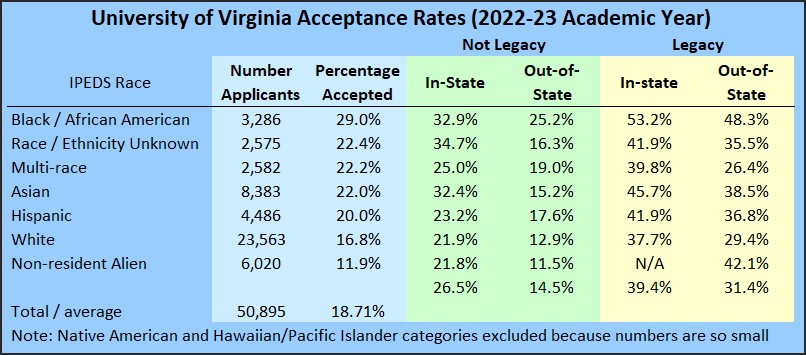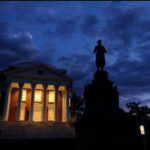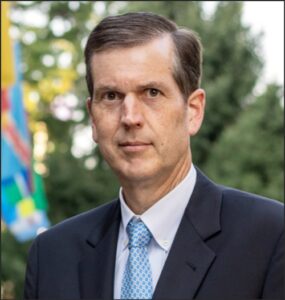
Courtesy University of Virginia
by James C. Sherlock
On April 29, 1962, President John F. Kennedy addressed a group of Nobel Prize winners at a dinner in their honor at The White House.
Kennedy, raised patrician, classically educated and fired in war and politics graciously toasted another such man.
“I think this is the most extraordinary collection of talent, of human knowledge, that has ever been gathered together at the White House — with the possible exception of when Thomas Jefferson dined alone.”
The polymath Jefferson saved the indulgence of a great passion, public education and the creation of a new style of American university, until his last years.
Influenced early by the writings on education of Sir Francis Bacon and John Locke, he completely re-imagined higher education in America from what consisted in 1800 largely of a few colleges teaching religion and the classics under church leadership and funding.
Jefferson’s idea of the university was an institution publicly funded and teaching republican ideals for the preservation of the form of government he and the other founders had labored so hard and risked so much to bring about.
It emphasized education in history, languages, the principles of the Enlightenment and the sciences with graduate schools in law and medicine. Of those he thought history to be the most critical of all to the preservation of freedom. Continue reading





 by Ann McLean
by Ann McLean



